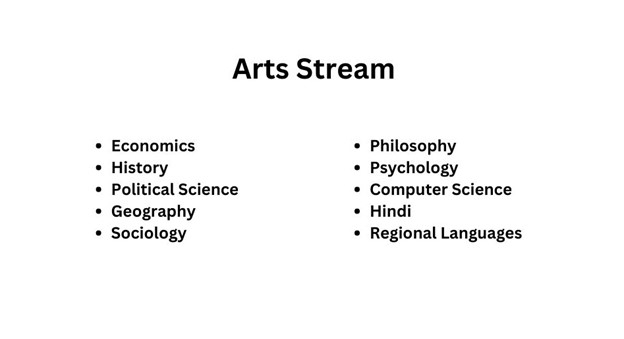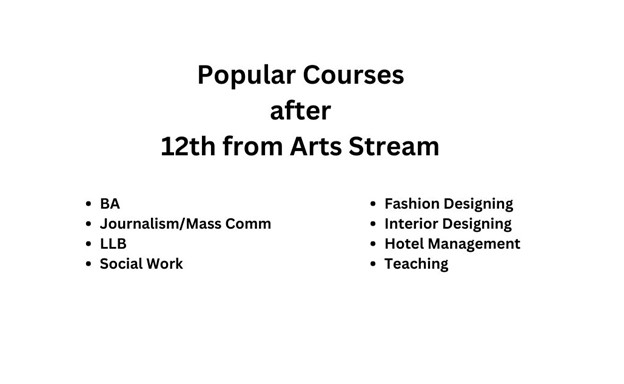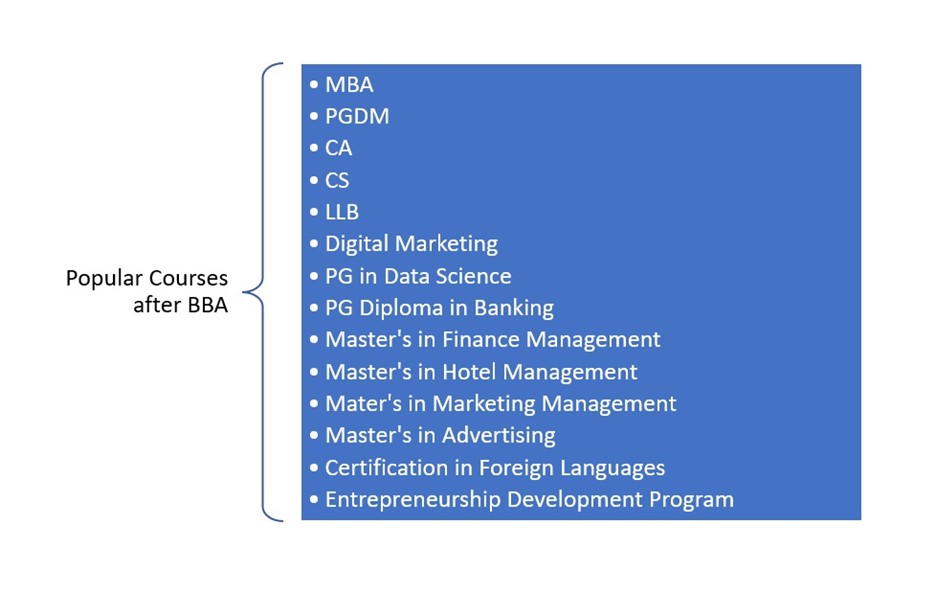A Bachelor of Business Administration is an academic qualification that equips students with a robust understanding of essential business concepts, preparing them for a successful career in Business Administration.
This degree is meticulously structured to furnish you with knowledge and skills pertinent to real-world business administration roles. It aids you in comprehending how to make informed business decisions through data-driven analysis, from managing an organisation’s daily operations to modifying strategies in response to evolving changes and challenges in the business landscape.
Choosing the appropriate course and institution following your 12th grade is a critical decision, as it can set the trajectory for a fulfilling career. Conversely, an incorrect selection may lead you to explore a discipline or a field that lacks resonance with your interests. Opting for a Bachelor of Business Administration (BBA) could potentially be the right choice for you, given its comprehensive approach to business fundamentals and its wide-ranging career prospects.
Understanding the Arts Stream

Core subjects in the Arts stream include Economics, History, Political Science, Geography, Sociology, Philosophy, Psychology, Computer Science, Hindi, Regional Language, etc. Let’s see how each of these subjects prepares students to pursue BBA after Class 12:
- Economics: Studying economics equips students with a firm understanding of how economies function, which is essential for various aspects of business administration. These principles can aid in making sound financial decisions, understanding market trends, and predicting economic patterns in a business context.
- History: A knowledge of history can help students develop a broader perspective of the world, understand cultural contexts better, and appreciate the evolution of business practices and economic systems over time. These skills can be valuable in the globalised business world.
- Political Science: The understanding of governmental structures and political dynamics acquired through this subject can help students navigate legal and regulatory environments in business, as well as understand the impact of political decisions on the business climate.
- Geography: Studying geography can provide students with insights into regional development, resource distribution, and demographic trends, which are crucial in business decision-making, particularly for businesses with a global footprint or those involved in logistics, supply chains, or real estate.
- Sociology: Knowledge of societal norms, social structures, and human behaviour garnered through sociology can assist in understanding consumer behaviour, managing diverse workforces, and adopting socially responsible business practices.
- Philosophy: Philosophy can enhance critical thinking, ethical decision-making, and problem-solving skills, all of which are essential for effective business administration.
- Psychology: Psychology’s focus on understanding human behaviour can provide valuable insights into employee motivation, leadership, team dynamics, and consumer behaviour, which are all pivotal in the realm of business.
- Computer Science: In an increasingly digitalised world, understanding computer systems and having a foundation in programming or data management can give BBA students an edge, as businesses rely heavily on technology for operations, decision-making, and strategy formulation.
- Hindi and Regional Languages: Proficiency in Hindi and regional languages can help students communicate effectively in diverse business environments within India, understand regional markets better, and forge stronger relationships with stakeholders.
Each of these subjects, in its unique way, provides foundational skills and knowledge that prove useful in pursuing a career in Business Administration through a BBA degree.

Apart from BBA, some other undergraduate programs and careers typically associated with the Arts Stream are:
- Bachelor of Arts (BA): A traditional choice, a BA degree allows students to specialize in one or more subjects of interest, such as economics, political science, sociology, or psychology. Following this, students can pursue further education like an MA or MBA, or explore career options in sectors like education, social work, counseling, or public policy.
- Journalism and Mass Communication: This field is a popular choice for arts students due to its focus on communication, creative thinking, and writing skills. Careers can include news reporting, public relations, advertising, digital media, and more.
- Law (LLB): The study of law is another career path that aligns well with the arts stream, especially for students interested in subjects like political science, sociology, or history. Law students can specialize in various fields such as corporate law, criminal law, intellectual property law, or international law.
- Social Work (BSW/MSW): For students interested in making a positive impact in society, a degree in social work can lead to rewarding careers in NGOs, government agencies, healthcare, and counseling services.
- Fashion Design/Interior Design: For those with a creative bent, a degree in fashion or interior design can open up opportunities in the fashion industry, interior design firms, or even freelance work.
- Hotel Management: This field combines elements of business, communication, and hospitality, leading to career opportunities in hotels, resorts, event management, or the food and beverage industry.
- Teaching/Education: With a degree in education, arts students can pursue a rewarding career in teaching, educational administration, or educational consulting.
Remember, the choice of a career should align with your interests, skills, and long-term goals. It’s always a good idea to research various career paths, speak to professionals in the field, and consider your own strengths and interests before making a decision.
The Appeal of BBA for Arts Students

A Bachelor of Business Administration (BBA) may not be an obvious choice for Arts students but it allows them to hone their skills and offer significant advantages in the realm of business. Here are some of the reasons why BBA is one of the top courses after Class 12 from Arts stream:
- Enrichment of Skill Set: Engaging in a BBA course could be a splendid opportunity for Arts students to diversify their skills. The critical thinking, analytical reasoning, and eloquent communication skills honed in Arts can be seamlessly translated into solving complex business issues, enabling innovative and creative solutions. This fusion of skills can certainly make them a valuable asset in the business world.
- Wide Array of Career Opportunities: BBA opens the gateways to a broad spectrum of career opportunities in the dynamic corporate world. Whether it’s marketing, human resources, or management, Arts students can explore numerous career paths that align with their inherent interests and capabilities, making them truly well-rounded professionals.
- Fueling Entrepreneurial Spirit: BBA programs are renowned for instilling students with robust entrepreneurial skills. For Arts students with a vision to establish their own businesses, this can be a significant advantage. The entrepreneurial skills gained through a BBA program, combined with the creativity and critical thinking skills from an Arts background, can uniquely equip them to start and manage successful enterprises.
In summary, a BBA can provide a solid foundation for Arts students to excel in the business world, leveraging their unique skills and perspectives. It’s an interesting blend of creative thinking with business acumen that could set them apart in today’s competitive market.
Arts students bring to the table a distinctive set of skills that can be invaluable when pursuing a Bachelor of Business Administration (BBA). They possess a natural ability for critical thinking, allowing them to approach business problems from various perspectives and devise innovative solutions.
Their proficiency in effective communication aids in negotiating, presenting ideas, and crafting effective business plans. Furthermore, the creative thinking fostered through Arts studies leads to unique business strategies and marketing techniques.
Their understanding of society and culture, developed through subjects such as sociology and history, offers essential insights for areas like marketing and customer relations. The empathy and emotional intelligence gleaned from dealing with human emotions and interactions serve as invaluable assets in human resources and customer service.
Their well-honed problem-solving and research skills are also highly beneficial in the business world, contributing to effective decision-making and strategy development. Thus, an Arts background can pave the way to a rewarding career in Business Administration.
Benefits of Pursuing BBA

After acquiring a BBA degree, you unlock an array of diverse career options spanning several sectors:
- Finance: Positions such as Bank Branch Manager, Commercial Lender, Financial Analyst, Financial Planner, Financial Manager, Portfolio Manager, Security Analyst, and Trust Manager are all potential roles for BBA graduates. You’ll be involved in making strategic financial decisions, managing investments, and ensuring a company’s fiscal health.
- Marketing: Career options include roles like Marketing Executive, Sales Executive, Advertising Executive, and Market Research Analyst. You will be engaged in creating and executing marketing strategies, driving sales, and understanding market trends to help businesses grow.
- Human Resources: HR Assistant, HR Coordinator, HR Specialist, and HR Recruiter roles are open to BBA graduates, enabling you to manage personnel, oversee recruitment, and contribute to a company’s culture.
- Operations: Roles like Logistic Executive, Operations Executive, Procurement Executive, Project Management Executive, and Supply Chain Executive allow BBA graduates to oversee the logistics, supply chain, and operations of a company.
- Government Jobs: BBA graduates can also opt for government jobs by cracking competitive exams like Civil Service Exam, RRB NTPC, SEBI Grade A, RBI Grade B, and LIC AAO.
- Tech and Business Roles: A switch to roles in Data Science, Digital Marketing, and Software Development is also possible post-BBA, allowing you to bring your business acumen to these fast-growing industries.
To put it briefly, a BBA degree opens up numerous career paths across sectors, ensuring that you can find a role that aligns with your interests and skills.
You can opt for traditional business roles in finance, marketing, and HR, or venture into the public sector. Alternatively, you can capitalise on the tech boom and pivot towards roles in data science, digital marketing, or software development.

If you are not ready for the job yet or want to upskill yourself for better career opportunities, here are some of the postgraduate programs you can pursue after BBA:
- Entrepreneurship Development Program: This program is designed to build entrepreneurial abilities, particularly beneficial for aspiring entrepreneurs or those planning to join their family business.
- Master of Business Administration (MBA): An MBA is a popular choice that expands your leadership abilities across sectors like finance, marketing, operations, etc.
- Post Graduate Diploma in Management (PGDM): PGDM is a two-year program that equips students with skills to hold managerial positions in various sectors.
- Chartered Accountant (CA): CA is a respected profession dealing with a company’s financial matters, tax records, auditing, and offering financial advice.
- Company Secretary (CS): CS is a key position in any company, overseeing legal aspects, maintaining tax records, and ensuring the company adheres to statutory regulations.
- Bachelor of Law (LLB): If you’re interested in legal matters, an LLB allows you to explore law practice.
- PG Diploma in Banking: This course prepares students for various banking careers, focusing on managing and investing company finances.
- Master’s in Finance Management: This course is a good choice if you’re interested in financial project planning, economic analysis, and corporate audit planning.
- Master’s in Hotel Management: This is a great choice if you’re interested in the hospitality industry.
- PG in Data Science: If you’re tech-savvy, a post-graduate program in data science can open new opportunities.
- Master’s in Marketing Management: This course prepares you for roles in marketing, a vibrant and essential part of any business.
- Master’s in Advertising: If you’re creative and enjoy communication, consider a master’s in advertising.
- Certification in Foreign Languages: This can open doors to jobs in foreign embassies and international companies.
- Digital Marketing: Given the rise of the online industry, digital marketing skills are in high demand, and a course in this field can be a great addition to your BBA degree.
In summary, post-BBA, there are numerous courses to consider, each opening up unique opportunities and preparing you for a diverse range of careers. Choose the one that aligns best with your interests, abilities, and career aspirations.

Key skills acquired through BBA that prove to be highly useful to you are:
- Leadership Skills: A BBA program helps you develop leadership qualities, allowing you to lead teams, make strategic decisions, and contribute effectively to organizational goals. These skills are crucial in any management role, promoting productivity, innovation, and a positive work culture.
- Organizational Research: BBA curricula often include research methodologies, enabling students to conduct in-depth organizational research. This skill is crucial in understanding business trends, making data-driven decisions, and developing strategies for business growth.
- Sales and Marketing Skills: Sales and marketing are integral to any business, and a BBA degree equips students with techniques to effectively promote and sell products or services. This skillset can directly impact a company’s bottom line, making it valuable in the competitive business world.
- Relationship Building: BBA programs often emphasize soft skills, including building and maintaining strong relationships. These interpersonal skills are vital in networking, collaborating with team members, building customer relationships, and navigating through various business environments.
- Negotiation Skills: BBA students are typically trained in negotiation techniques, an essential skill in many business scenarios, from contract agreements to customer deals. Effective negotiation can lead to better business outcomes, conflict resolution, and mutually beneficial agreements.
Eligibility and Admission Process for BBA

In most cases, the eligibility criteria for the BBA program is that candidates should have passed the 10+2 exams with a minimum of 50% marks (if you are a general category student) and at least 45% (if you are a reserved category student.
Most universities and business schools accept CUET scores. Some conduct their own BBA entrance exam which might be conducted offline or online. Some may also conduct personal interview rounds to screen the candidates.
At SMS Varanasi, you can get direct admission to BBA if you have cleared your BBA from any stream.
Key Takeaways: Making the Decision
Before deciding to pursue BBA after Class 12, it’s crucial to have clarity on your long-term career goals. If you are inclined towards business, management, entrepreneurship, or want to work in a corporate setting, BBA can be an excellent choice. Also, if you want to do MBA one day, BBA can help you build a strong foundation for it and have a head start.
BBA curriculum involves studying various aspects of business and management. Therefore, having a keen interest in these areas can make the learning process enjoyable and productive.
The cost of a BBA program can vary based on the institute but there are many B-schools that offer quite affordable undergraduate education degree programs. Ensure that you consider your financial situation and look for scholarships or financial aid if needed.
You must check the reputation and accreditation of the institution from where you wish to pursue your BBA after Class 12. A degree from a well-recognized institution can add more value to your resume and provide better placement opportunities.
For example, SMS Varanasi is affiliated with Mahatma Gandhi Kashi Vidhyapith (MGKVP), Varanasi for the BBA program. It has NAAC ‘A accreditation. It is also one of the top 50 B-schools in North India.
Pursuing a BBA offers Arts stream students a unique chance to broaden their skill set, integrating their creative, analytical, and critical thinking abilities with business and management concepts. This interdisciplinary approach can open up diverse career paths and bring novel perspectives into the business world. Don’t miss the opportunity to shape your future with the BBA program at SMS Varanasi! Join us now to equip yourself with comprehensive business knowledge, develop valuable management skills, and be a part of an enriching academic community.





